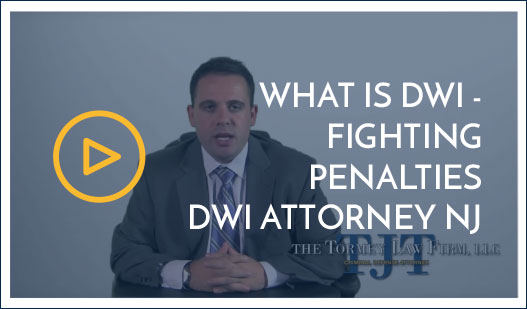Lodi Hindering Apprehension Defense Attorneys
With Offices in Hackensack, New Jersey
Arrested, charged with hindering apprehension in Bergen County? Need a lawyer? Contact us.
 The Tormey Law Firm is a criminal defense and DWI practice located in Bergen County, New Jersey, with offices in located in Hackensack, just steps from the Hackensack Municipal Court, the Bergen County Superior Court, and the Bergen County Jail. Travis J. Tormey, the firm’s founder, is an experienced criminal defense attorney who has been cited by AOL News, the Asbury Park Press, and the Daily Record in New Jersey as a knowledgeable authority on criminal cases, including shoplifting, disorderly conduct, and sex crimes. Mr. Tormey and his team of attorneys have earned an extremely favorable reputation among their clients and fellow legal professionals, as they have successfully handled thousands of criminal cases throughout New Jersey. To read just some of their clients reviews, click here.
The Tormey Law Firm is a criminal defense and DWI practice located in Bergen County, New Jersey, with offices in located in Hackensack, just steps from the Hackensack Municipal Court, the Bergen County Superior Court, and the Bergen County Jail. Travis J. Tormey, the firm’s founder, is an experienced criminal defense attorney who has been cited by AOL News, the Asbury Park Press, and the Daily Record in New Jersey as a knowledgeable authority on criminal cases, including shoplifting, disorderly conduct, and sex crimes. Mr. Tormey and his team of attorneys have earned an extremely favorable reputation among their clients and fellow legal professionals, as they have successfully handled thousands of criminal cases throughout New Jersey. To read just some of their clients reviews, click here.
If you or someone you love has been charged with a criminal offense or motor vehicle violation in Bergen County, New Jersey, contact the attorneys at Hackensack’s Tormey Law Firm to discuss your case. We are readily available to provide free consultations at (201)-330-4979 or to schedule an appointment at one of our convenient office locations
Hindering Apprehension in New Jersey: N.J.S.A. 2C:29-3
§ 2C:29-3. Hindering apprehension or prosecution
a. A person commits an offense if, with purpose to hinder the detention, apprehension, investigation, prosecution, conviction or punishment of another for an offense or violation of Title 39 of the Revised Statutes or a violation of chapter 33A of Title 17 of the Revised Statutes he:
(1) Harbors or conceals the other;
(2) Provides or aids in providing a weapon, money, transportation, disguise or other means of avoiding discovery or apprehension or effecting escape;
(3) Suppresses, by way of concealment or destruction, any evidence of the crime, or tampers with a witness, informant, document or other source of information, regardless of its admissibility in evidence, which might aid in the discovery or apprehension of such person or in the lodging of a charge against him;
(4) Warns the other of impending discovery or apprehension, except that this paragraph does not apply to a warning given in connection with an effort to bring another into compliance with law;
(5) Prevents or obstructs, by means of force, intimidation or deception, anyone from performing an act which might aid in the discovery or apprehension of such person or in the lodging of a charge against him;
(6) Aids such person to protect or expeditiously profit from an advantage derived from such crime; or
(7) Gives false information to a law enforcement officer or a civil State investigator assigned to the Office of the Insurance Fraud Prosecutor.
An offense under paragraph (5) of subsection a. of this section is a crime of the second degree, unless the actor is a spouse, domestic partner, partner in a civil union, parent or child to the person aided who is the victim of the offense, in which case the offense is a crime of the fourth degree. Otherwise, the offense is a crime of the third degree if the conduct which the actor knows has been charged or is liable to be charged against the person aided would constitute a crime of the second degree or greater, unless the actor is a spouse, domestic partner, partner in a civil union, parent or child of the person aided, in which case the offense is a crime of the fourth degree. The offense is a crime of the fourth degree if such conduct would constitute a crime of the third degree. Otherwise it is a disorderly persons offense.
b. A person commits an offense if, with purpose to hinder his own detention, apprehension, investigation, prosecution, conviction or punishment for an offense or violation of Title 39 of the Revised Statutes or a violation of chapter 33A of Title 17 of the Revised Statutes, he:
(1) Suppresses, by way of concealment or destruction, any evidence of the crime or tampers with a document or other source of information, regardless of its admissibility in evidence, which might aid in his discovery or apprehension or in the lodging of a charge against him; or
(2) Prevents or obstructs by means of force or intimidation anyone from performing an act which might aid in his discovery or apprehension or in the lodging of a charge against him; or
(3) Prevents or obstructs by means of force, intimidation or deception any witness or informant from providing testimony or information, regardless of its admissibility, which might aid in his discovery or apprehension or in the lodging of a charge against him; or
(4) Gives false information to a law enforcement officer or a civil State investigator assigned to the Office of the Insurance Fraud Prosecutor.
An offense under paragraph (3) of subsection b. of this section is a crime of the second degree. Otherwise, the offense is a crime of the third degree if the conduct which the actor knows has been charged or is liable to be charged against him would constitute a crime of the second degree or greater. The offense is a crime of the fourth degree if such conduct would constitute a crime of the third degree. Otherwise it is a disorderly persons offense.
Penalties for Hindering Apprehension in New Jersey
As the above statute stipulates, hindering apprehension can be a second degree, third degree, fourth degree, or disorderly persons charge, depending on the circumstances of the alleged offense. A second degree charge is punishable by five (5) to ten (10) years in New Jersey State Prison, with an associated presumption of incarceration. This means that, even if you have no prior criminal record, a conviction for a second degree charge can result in a mandatory prison term. A third degree charge, on the other hand, is punishable by three (3) to five (5) years in state prison, but entails a presumption of non-incarceration. This means that, if you have no prior criminal history and you are convicted of a third degree crime, you might be considered a good candidate for probation. Finally, a disorderly persons offense can be handled in the local municipal court and is punishable by a maximum of six (6) months in the county jail.
Contact the Hackensack Tormey Law Firm Today
For additional information about your hindering apprehension case, contact our Hackensack, New Jersey offices at (201)-330-4979. One of our Bergen County criminal defense attorneys will be happy to speak with you about your specific circumstances and to explore the best strategies for fighting your charges.


